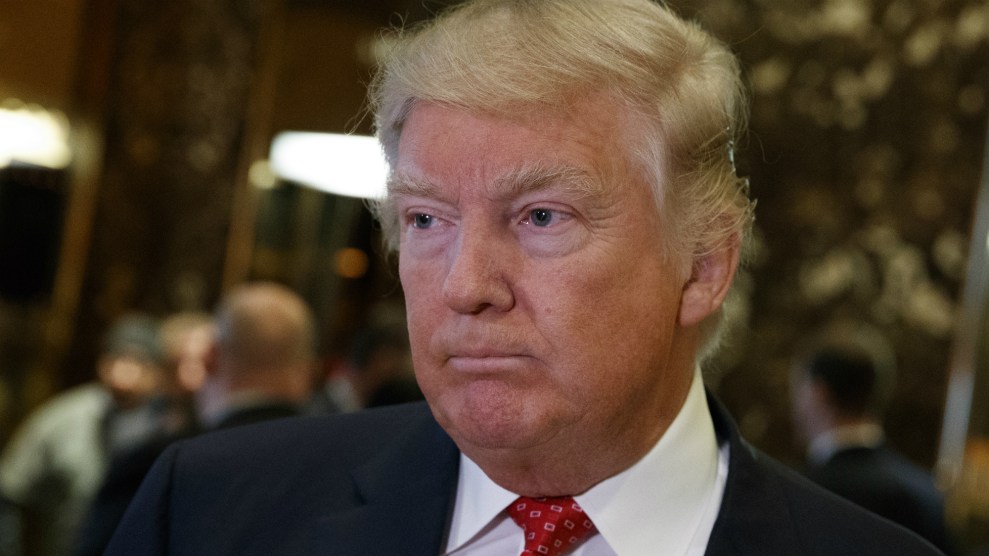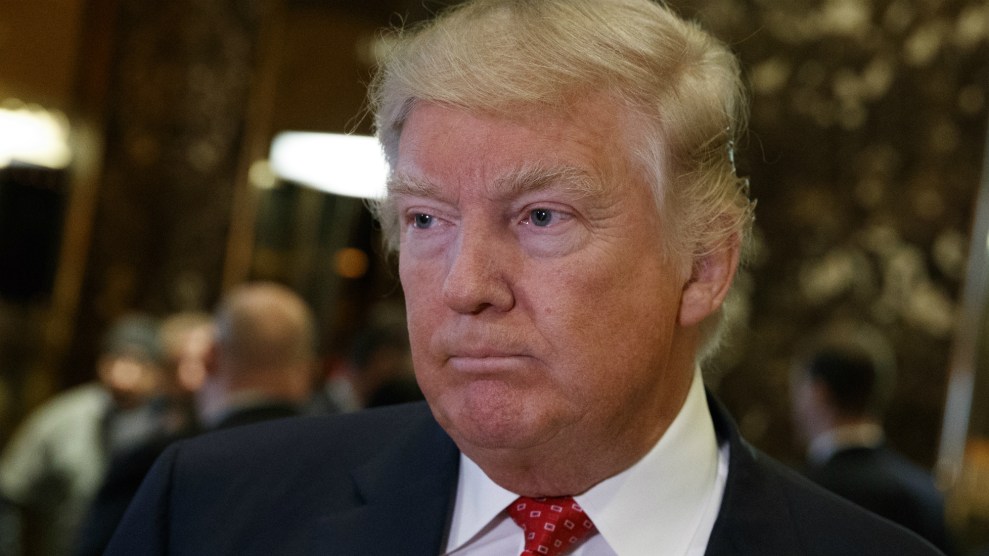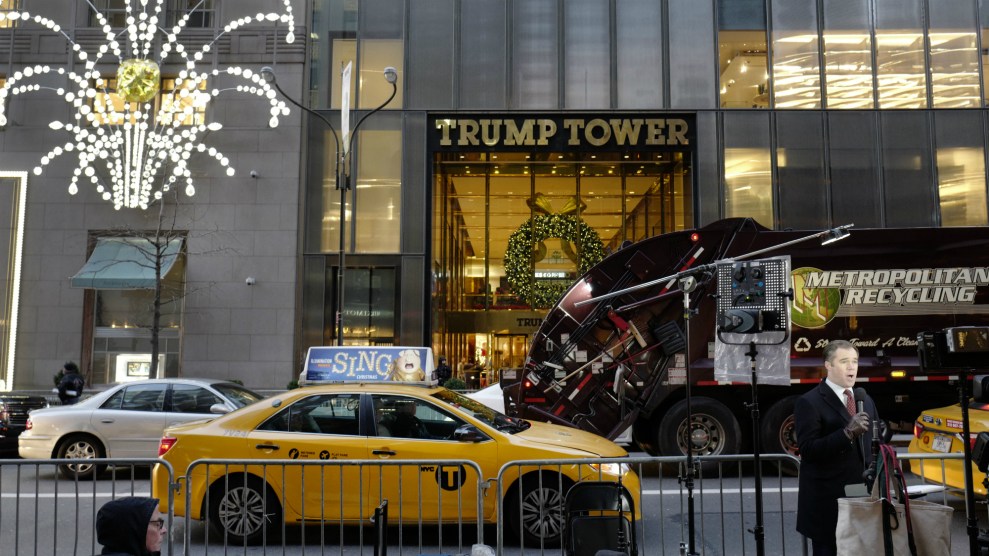
Evan Vucci/AP
At a long-awaited press conference Wednesday, Donald Trump outlined an extensive list of steps he plans to take to separate himself from his business interests. But he stopped short of the one thing that ethics experts agree he needs to do to eliminate conflicts of interest: divest his billions in assets and debts and place the proceeds in a blind trust.
Standing in front of a large stack of papers and manila folders that he said represented agreements he has signed to separate himself from his businesses, Trump steadfastly insisted he did not have to take any measures to avoid conflicts because federal ethics rules do not apply to presidents or vice presidents. According to Trump and a lawyer he retained to devise a plan to limit his business conflicts, he was voluntarily taking steps to make sure there are no questions about whether he is acting in the public interest while in office. Under the plan detailed at the press conference, Trump’s assets will be placed into a trust that will be run by his sons and another Trump executive, and all of the Trump Organization’s deals will be vetted by an ethics adviser who will have the right to veto any new deals that might present a conflict.
But the Trump trust will not be a blind trust—that is, an entity run by an independent third party containing assets the beneficiary is unaware of. It will just be a trust. Many of Trump’s assets are already in a trust—the Donald J. Trump Revocable Trust—but according to Trump and his attorney, Sheri Dillon, he won’t play a role in managing the new trust. Dillon said Trump will not be provided with detailed statements showing how his companies are performing. He will just receive updates showing the profits or losses of his assets.
Dillon also attempted to stave off concerns that Trump might violate the Constitution’s emoluments clause, which prohibits federal officials from receiving financial benefits from a foreign government. Ethics experts have pointed out that Trump’s financial entanglements may violate this provision. Among other things, he is part of a partnership that owes money to a government-owned Chinese bank. And foreign diplomatic delegations have rushed to book space at Trump’s new Washington, DC, hotel—seen by many as an attempt to curry favor. According to Dillon, Trump will donate all hotel profits connected to any foreign government to the US Treasury.
None of Trump’s proposals seemed to impress his critics. Norm Eisen, who served as a lead ethics attorney in Barack Obama’s administration, said the plan laid out by Trump and Dillon fails all five standards that he and Richard Painter, a former ethics attorney for the George W. Bush administration, laid out prior to the press conference.
“Tragically, the Trump plan to deal with his business conflicts announced today falls short in every respect,” Eisen said, calling it “an inadequate and scantily detailed ethics wall.”
“Mr. Trump’s ill-advised course will precipitate scandal and corruption,” Eisen added.
One of Trump’s most intractable conflicts of interest is the debt he owes to lenders around the globe. Trump has reported owing $713 million. His biggest lender is Deutsche Bank, the troubled German bank that recently agreed to a $7.2 billion settlement with the Justice Department for its role in the 2008 mortgage crisis. The bank remains under investigation by the Justice Department for possibly participating in an attempt to funnel money out of Moscow in defiance of international sanctions. Trump did not address the loans other than to say he believed his company has very little debt.
As he left the stage, Trump said he was happy to leave his sons in charge of his business empire and that he will judge how they have performed when he leaves the White House. “I hope they do a good job,” Trump said in closing, “but if they don’t a good job, I’ll say, ‘You’re fired!'”
















